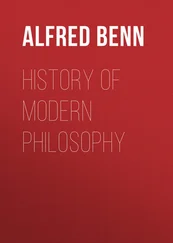Charles Graves - Mr. Punch's History of Modern England. Volume 2 of 4.—1857-1874
Здесь есть возможность читать онлайн «Charles Graves - Mr. Punch's History of Modern England. Volume 2 of 4.—1857-1874» — ознакомительный отрывок электронной книги совершенно бесплатно, а после прочтения отрывка купить полную версию. В некоторых случаях можно слушать аудио, скачать через торрент в формате fb2 и присутствует краткое содержание. ISBN: , Издательство: Иностранный паблик, Жанр: foreign_prose, foreign_humor, на английском языке. Описание произведения, (предисловие) а так же отзывы посетителей доступны на портале библиотеки ЛибКат.
- Название:Mr. Punch's History of Modern England. Volume 2 of 4.—1857-1874
- Автор:
- Издательство:Иностранный паблик
- Жанр:
- Год:неизвестен
- ISBN:http://www.gutenberg.org/ebooks/45003
- Рейтинг книги:4 / 5. Голосов: 1
-
Избранное:Добавить в избранное
- Отзывы:
-
Ваша оценка:
- 80
- 1
- 2
- 3
- 4
- 5
Mr. Punch's History of Modern England. Volume 2 of 4.—1857-1874: краткое содержание, описание и аннотация
Предлагаем к чтению аннотацию, описание, краткое содержание или предисловие (зависит от того, что написал сам автор книги «Mr. Punch's History of Modern England. Volume 2 of 4.—1857-1874»). Если вы не нашли необходимую информацию о книге — напишите в комментариях, мы постараемся отыскать её.
Mr. Punch's History of Modern England. Volume 2 of 4.—1857-1874 — читать онлайн ознакомительный отрывок
Ниже представлен текст книги, разбитый по страницам. Система сохранения места последней прочитанной страницы, позволяет с удобством читать онлайн бесплатно книгу «Mr. Punch's History of Modern England. Volume 2 of 4.—1857-1874», без необходимости каждый раз заново искать на чём Вы остановились. Поставьте закладку, и сможете в любой момент перейти на страницу, на которой закончили чтение.
Интервал:
Закладка:
Yet listen, conqueror, while the shade,
That should sit near thee in thy car,
Whispers how quickly laurels fade,
How swiftly shift the sands of war;
How, sixty-five years since, there came
A mightier Emperor than thou,
Upon Berlin to put the shame
Which thy hand puts on Paris now.
Even as thy heel is on their head,
That on thy folks' head set their heel,
So, ere threescore more years have sped,
The woe thou work'st thy sons may feel.
"Who smite with sword by sword shall fall,"
Holds for kings as for subjects true;
God's mills grind slow, but they grind small,
And he that grinds gives all their due.
The courtesy of Germany in coming to an amicable settlement over the loss of some British colliers sunk in the Thames is acknowledged; but anxiety as to her further aggressions was not allayed by her desire to possess Heligoland, and was undoubtedly enhanced by the publication of that brilliant realistic romance, The Battle of Dorking , while the fratricidal tragedy of the Commune, and the ruthless measures of suppression employed, augured ill for the recovery of France from the abasement of defeat. These events and the lessons they conveyed to England were not overlooked by Punch ; they served to temper his light-heartedness with moods of misgiving. Yet the wonderful elasticity – due, as even official Republican historians admit, to the industrial prosperity created under the Second Empire – which enabled France to pay off what in those days seemed a crushing war indemnity long before the time fixed, emboldened Punch in the spring of 1873 to indulge once more in a prophecy of the reversal of the verdict of 1870. When the German occupation ended, France is shown undauntedly confronting Germany with the words: "Ha! We shall meet again."
Germany: "Farewell, Madame, and if – "
France: "Ha! We shall meet again!"
Germany was not the only foreign power that caused anxiety during the Gladstone administration of 1868-1874. Russia availed herself of the troubles of 1870 to revive the Near Eastern question by refusing to recognize her treaty obligations in the Black Sea; but the friction thus created was allayed by the compromise effected by the Black Sea Conference. And Russia's expedition to, and occupation of, Khiva in 1873 gave rise to further uneasiness. But non-intervention remained the order of the day throughout. The Ashanti expedition of 1873, whether in respect of its aim or its scale could not be regarded as forming an exception. But it furnished Punch with occasion for much plain-spoken criticism of War Office red tape and mismanagement. He saw in Sir Garnet Wolseley "the right man in the wrong place": —
In our deep penny wisdom, and horror of waste,
We shipped off the General minus his men,
So that if in a fix he should find himself placed,
He might merely lose time writing home back again.
Gladstonian Legislation
Happily these misgivings were falsified in the sequel, and early in 1874 Punch was able to record, amongst other evidences of the satisfactory conclusion of the campaign, the arrival in England of King Coffee's State umbrella. The Gladstone administration may not have been efficient in the conduct of military operations, but in the sphere of Army Reform it deserved well of the country for the abolition of purchase, in the teeth of strong opposition from the Horse Guards' element, and the reorganization of the service on lines which substantially endured for a generation or more. For these improvements we have to thank a civilian, Cardwell, whose name is indissolubly associated with the changes brought about in 1870. The second instalment of Gladstone's scheme for the pacification of Ireland – the Land Act of 1870 – was supported by Punch , but did not achieve its purpose, since it left the vexed question of dual ownership unsettled; and it was another Irish measure – the University Bill – that brought the Government down. The legislative achievements of the Gladstone Administration had been immense and salutary in many directions, but the universality of its activities undoubtedly contributed to its growing unpopularity and lent force to Disraeli's famous electioneering cry of "plundering and blundering." Punch , who had in the main supported Gladstone, advised the Cabinet to resign after their defeat, but the Prime Minister resumed office temporarily and did not dissolve till January 1874.
Dr. Punch: "My dear young friends, you have done next to nothing this half. Therefore, a little task during the vacation will be good for you. You, Master Benjamin, must get up a 'definite policy.' You, Lowe, will write a paper on the 'Application of the Screw .' Ayrton, you will have to get by heart the whole 'Book of Etiquette.' Miall, you must attend Church regularly. Whalley, you're going to America – stay there! Plimsoll, you must learn to – ahem – moderate your transports . And as for you, William Ewart, the idler you are the better!"
England 2,000 Years Hence
Much had been done in this, the central mid-Victorian age, to abate the evils and abuses which kept the "Two Nations" apart in earlier days. Yet at the opening of the new Disraelian régime , with its imperial aspirations, it may not be amiss to reproduce the verses, somewhat in the vein of Thackeray's musings on Vanitas Vanitatum , in which Punch bade farewell to the Comet of 1858: —
Dare a bold atom ask, with brain half dizzy,
What you will see two thousand years to come,
This planet still an ant's nest, black and busy,
Or an extinct volcano, white and dumb?
Will you behold, if keeping that appointment,
(Made for you, Sir, by Airy and by Hind)
Men still anointing Kings with holy ointment,
And Priests still leading, as the blind the blind.
Earth's choicest youth fierce rushing to the slaughter
That two crowned Fools may wreak their idiot pet;
Or wiser Christians' blood poured out like water,
That Jews may gamble with a nation's debt.
Will that day's Patriot be a mouthing truckler,
Setting proud Freedom's hymn to Freedom's dirge;
Will Law be still the rich man's shield and buckler,
The good man's terror, and the poor man's scourge?
Will you find Life a hot and blindfold scrimmage,
Men straining, struggling, scrambling, for red gold;
And Faith still worshipping the Golden Image
Reared by King Beelzebub in days of old?
Will all that world, with coronet and plaudit,
Reward Success, while Merit's scorned and passed;
Will man ignore that great and dreadful Audit,
When Lies shall fail – the first time, and the last?
Who knows? Off, glorious Star-horse, clothed with thunder —
Thou hast no right to make a light strain sad;
Yet he wrote well, who wrote in awe and wonder —
"An undevout Astronomer is mad."
THE ROAD TO REFORM
Turning from England's international outlook to home affairs, we are confronted in the earlier stages of the period under review by the powerful negative influence of Lord Palmerston. A great Foreign Minister, a capable and humane administrator when he was at the Home Office, he had little belief in legislative remedies, and his refusal to grapple with Reform became progressively distasteful to his Liberal supporters. The old party system had been confused and shattered by the secession of the Peelites, as the result of the Repeal of the Corn Laws, and Palmerston was maintained in power in fact, if not in name, by a coalition. His death ended the régime of masterly inactivity and cleared the way for the reconstruction of parties and the prolonged duel between the two great protagonists – Disraeli and Gladstone.
Читать дальшеИнтервал:
Закладка:
Похожие книги на «Mr. Punch's History of Modern England. Volume 2 of 4.—1857-1874»
Представляем Вашему вниманию похожие книги на «Mr. Punch's History of Modern England. Volume 2 of 4.—1857-1874» списком для выбора. Мы отобрали схожую по названию и смыслу литературу в надежде предоставить читателям больше вариантов отыскать новые, интересные, ещё непрочитанные произведения.
Обсуждение, отзывы о книге «Mr. Punch's History of Modern England. Volume 2 of 4.—1857-1874» и просто собственные мнения читателей. Оставьте ваши комментарии, напишите, что Вы думаете о произведении, его смысле или главных героях. Укажите что конкретно понравилось, а что нет, и почему Вы так считаете.












